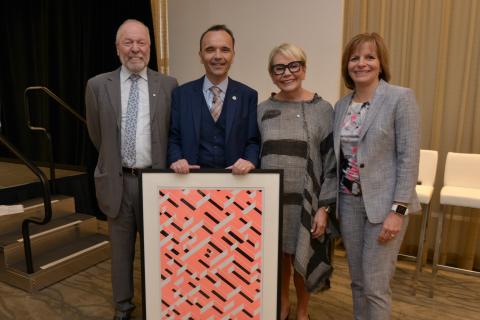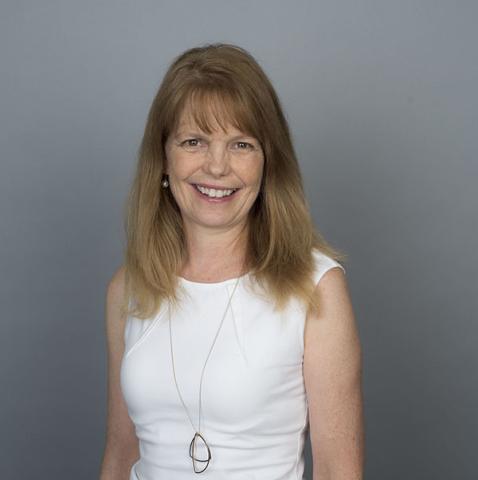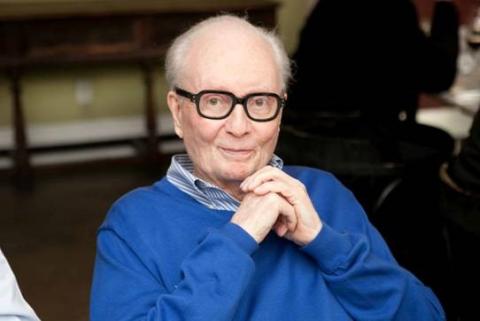
Not every senior wants to play bridge or bingo. Not every senior wants to use a walker or scooter. Some still drive but have little or no family nearby and no one to visit. Mobile or not, many are lonely and just want companionship. Others are infirmed, unable to clean their home, cook a meal or get to a doctor’s appointment.
The Slaight Family Foundation’s recent $15 million donation for the creation of The Allan Slaight Seniors Fund — named after the family patriarch who long supported the United Way and volunteered for nine years with the Board of Directors, starting in 1979 — will be administered over six years by the United Way Greater Toronto to help expand existing programs and invite new ones.
The last census by Statistics Canada, released in 2017, enumerated more seniors, 65 and up (5.9 million) than children 14 years and younger (5.8 million), and the gap between the number of seniors and children is growing, according to stats released in January, 2019.
According to the American Psychological Association, “loneliness and social isolation may represent a greater public health hazard than obesity, and their impact has been growing and will continue to grow,” it read in a 2017 press release, based on the AARP’s (formerly the American Association of Retired Person) Loneliness Study and census data about homelife and marital status. In Ontario, seniors are the fastest growing age population, whose numbers are expected to double by 2041.
The United Way, which aims to improves the lives “for everyone in our communities,” not just seniors, has over 80 offices across Canada, each registered as its own non-profit organization. The Greater Toronto Area (GTA) office is connected to more than 270 agencies to cover and serve all neighbourhoods.
Samaritanmag spoke with Ruth Crammond, vice-president, community investment and development, for United Way Greater Toronto about the specific needs of seniors and how the Slaight family’s enormous gift will further allow the organization to help them.

We fund a network of organizations, many of whom are in the community working with seniors. Sometimes they might be ethno-specific agencies or ethno-specific programs that are reaching out to, say, South Asian or Chinese speaking seniors and bringing them together and getting out into their homes, through language specific services. Sometimes, it might be a multi-service neighborhood center where organizations are bringing seniors together, even intergenerationally. Often volunteers involved. We fund a program, for example, where volunteers do telephone reassurance to seniors just to call, daily or weekly and make sure they're okay at home. So there's a whole range of things that we currently fund. But the number of seniors is growing and people are living longer, which is great news, but now seniors will be a larger population than young people.
What age is considered senior these days?
We are not too particular. It's more about whether someone is becoming isolated because of their age or ability. Sometimes people say it's 55 and over. The good thing about community services is we're not too tight about that. If people want to come to the programs or are in need, then that’s who’s going to get served.
Some seniors might have the financial means but the loss of a spouse leaves them lonely and isolated. Perhaps they are infirmed, unable to drive or walk distances, and aren’t tech savvy, so aren't connected to the "outside world" through the internet. Are they still eligible to access your help, even though they have money?
Yes. The focus for United Way will be on seniors who are vulnerable. And that vulnerability is made even more complicated by not having the resources. Many of the programs though that we work with may have a sliding scale fee. So those who can afford to pay may pay and then United Way will be supporting those who can't afford to pay for the programs. So it's often a mix of people that would use the programs and services. Call United Way and they help you connect with a program in your neighborhood.
Are there specific things that United Way is not currently doing that this money will be allocated towards?
This will actually allow us to expand that network of programs. It may not be something that has never been done before, but it would be much more of it. So we hope to fund 15 to 20 new programs through this, throughout the region, so that we can probably reach thousands more seniors through that process.
To get a bit more specific, the programs range from keeping someone company, dropping in to the home to transportation to and from appointments?
It’s a real special thing because often donors do want to be extremely targeted, whereas this gift acknowledges the diversity of needs, the diversity of issues and the diversity of responses that might be required. I imagine there will be peer support programs. Some people who are aging and healthy may be able to support some others who are aging and not as healthy or more isolated. It could be giving them a ride. It could be going to visit them, but also we will be trying to bring people out of their homes to meet in their neighborhoods because we do know that that that isolation actually can have as much of an impact as physical health problems on people's ability to live longer. So a lot of the programs will be trying to bring people together, bring them together for a meal, bring them together perhaps even just to learn more about what their options are or just to socialize.
United Way allocates this money to auxiliary programs and the seniors or their family has to contact those organizations?
That's how we work. We do some things ourselves, but mostly we are helped to bring people together and make sure the resources, based on our research and our knowledge, are getting to where they're needed the most. They’ll be a call for proposals. It will go to our network of agencies, but it'll be open to others and they will apply for the funding, and then we will look at best practices. We will make sure that the programs are real good quality that are going to reach the people that need it.
There are government organizations. There are the LHIN-funded programs [Local Health Integration Network] through the community care access centers and others. There is a central place that people can call and get information and get directed to all of these programs. But often seniors and families in a neighborhood do know about their local organization.
Some “seniors” don’t want to be involved in cliché senior activities, such as bridge or bingo or lawn bowling or needlepoint. Will this money go towards programs that don’t pigeonhole seniors?
One of the things that I'm excited about is to see what comes forward. We'll be open to proposals. We do hope to see some innovation, see some different ways of doing things. We're also hoping to see some different partnerships. Another issue is that seniors are being discharged from hospital and there's not a great connection between the healthcare system and follow-up in community. So we're hoping to see some innovation. We'll be open to exciting new proposals that might come up through this and different ways of doing things.

I do not know Allan. I know what he means to United Way. He's quite a legend at United Way from his time on the board. But the family also supported our Youth Challenge Fund [a partnership between the Ontario government and the United Way to create and foster youth leadership], which was a whole different approach to try to engage youth in community and in neighborhoods. Again, we always have a neighborhood approach. So we have this long relationship [with the Slaights]; they're legendary. I have been quite moved by the way that Gary [Slaight] and [Allan’s wife] Emmanuelle [Gattuso] are so low key and not looking for attention, just doing this out of their hearts and not needing or wanting to be in the spotlight, which is a rare thing. I's just been quite a privilege. They really just want the money to go to something important and something meaningful on the ground and that's what we want to see happen.
(Please support Samaritanmag's original journalism by making a PayPal contribution or EMT transfer using info@samaritanmag.com so we can increase the amount of content and writers we hire. Samaritanmag is the anti-tabloid, covering good people trying to change bad things. Let's make this thing bigger than TMZ.)
cheap lebron xi 11 size 13